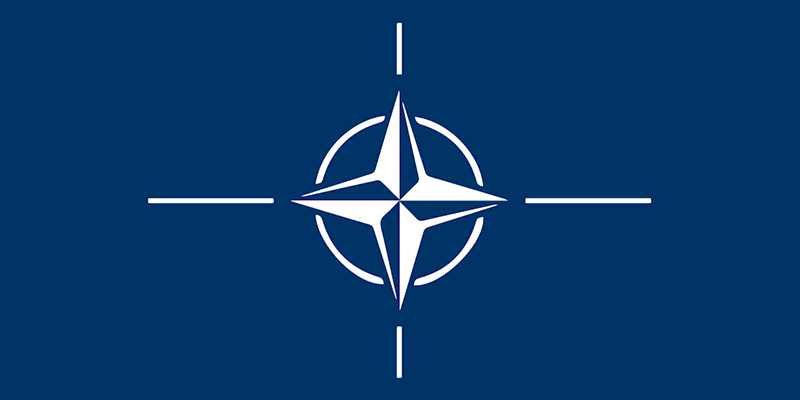December 02, 2019
"The NATO states are not paying their fair share," the American president said. "We have been very generous to Europe," he continued, "and it is now time for us to look out for ourselves, knowing full well that the Europeans will not do anything for us simply because we have in the past helped them."
So said John F. Kennedy during a national security meeting with his staff in 1963.
At the time, NATO was just 14 years old. The issue of burden-sharing in the alliance was already a divisive topic, but the Soviet threat held things together. This year the alliance turned 70 – and as leaders of the bloc's 29 member states meet in London today to mark that anniversary, NATO's purpose and future are more uncertain than ever.
Three big questions hang over the summit:
First, is NATO relevant? NATO was formed in the earliest days of the Cold War as a military bloc to deter Soviet aggression. Since the USSR collapsed in 1991, the alliance has struggled to define a new purpose as unifying as that one. Is it meant to prevent Russia from doing to former Soviet-bloc NATO members what it's done to Ukraine since 2014? Is it also a Western counter-terrorism bloc? Should it also focus more on the 21st century threat of cyberwarfare? Or is it enough that it's a military alliance guaranteeing security and stability for the world's two largest economic areas (North America and the EU)?
Second, is NATO "brain dead"? French President Emmanuel Macron recently threw a (rhetorical) bomb into the alliance by warning that Washington's shakier commitment to NATO, alongside internal disagreements over NATO-member Turkey's invasion of northern Syria, had put the alliance in danger of "brain death." Macron thinks the EU must develop its own collective defense plans if it wants to stay globally relevant. Other European NATO leaders don't really agree with that (they see in it Charles De Gaulle's old ambition of a Paris-led European security order), but Macron's remarks threw a harsh light on a basic question: are there still common transatlantic values and aspirations that can hold NATO together into the future?
Third, is NATO fair? NATO member states are supposed to spend 2 percent of their GDP on defense. Currently, only seven of them reach that level, while the US spends a hefty 3.39 percent. As the Kennedy quote above shows, questions about European "freeloading" are at least three generations old, but Trump is the first president to raise this issue so openly.
NATO heads of state are expected to renew their commitment to hitting those targets this week, but the bigger questions about the alliance's future will remain. Word is that the bloc is going to appoint a council of "wise persons" on how to reform and refresh the alliance ahead of the next summit in 2021.
What do you think the point of NATO in the 21st century ought to be? Let us know, and we'll run some of your best ideas.
More For You
- YouTube
Who decides the boundaries for artificial intelligence, and how do governments ensure public trust? Speaking at the 2026 World Economic Forum in Davos, Arancha González Laya, Dean of the Paris School of International Affairs and former Foreign Minister of Spain, emphasized the importance of clear regulations to maintain trust in technology.
Most Popular
Moldovan President Maia Sandu speaks during a Council of Europe diplomatic conference to launch the International Claims Commission for Ukraine, aimed at handling compensation claims related to Russia's war in Ukraine, in The Hague, Netherlands, December 16, 2025.
REUTERS/Piroschka van de Wouw
The president of the tiny eastern European country has suggested possibly merging with a neighbor.
Hard numbers: US pitches “New Gaza,” Japan paves way for snap elections, “Sinners” smashes records, & More
Jan 23, 2026
Middle East negotiator and son-in-law of President Trump, Jared Kushner talks with Israeli diplomats following a joint press conference in the State Dining Room of the White House in Washington, DC, USA, 29 September 2025.
$25 billion: The minimum amount of investment required to fulfil Jared Kushner’s ambitious property plan for Gaza.
- YouTube
Who decides how much control a country should have over its technology? Speaking at the 2026 World Economic Forum in Davos, former UK Prime Minister Rishi Sunak discussed the balance between national sovereignty and global interdependence.
© 2025 GZERO Media. All Rights Reserved | A Eurasia Group media company.
